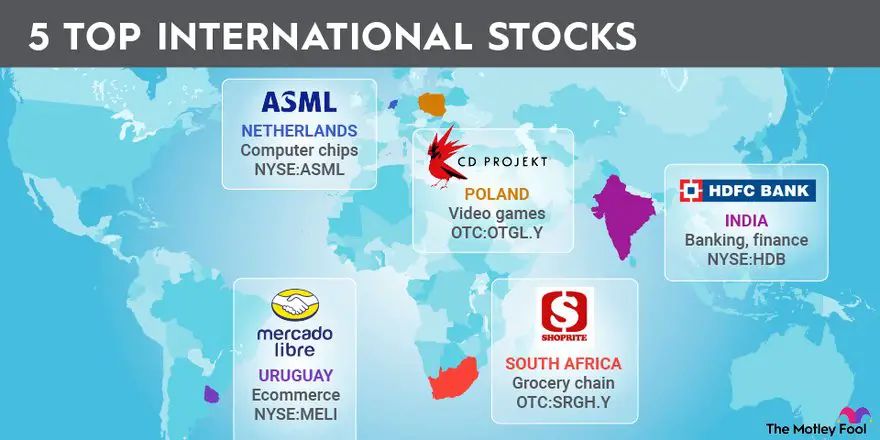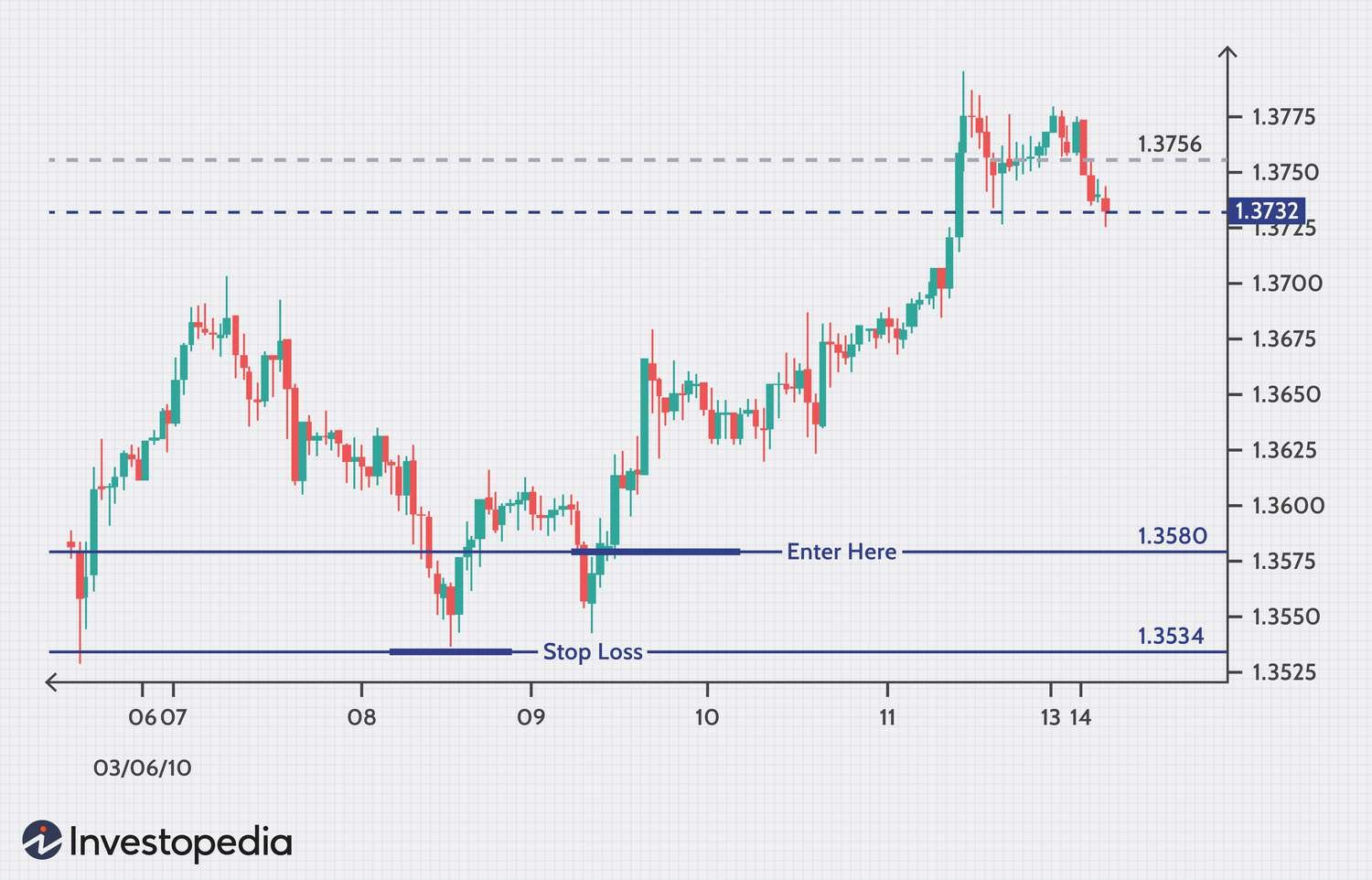Investing in international stocks can be a daunting task, but it doesn’t have to be. Whether you’re a seasoned investor or just starting out, these tips for investing in international stocks will provide you with valuable insights and strategies to make informed decisions. From researching different markets to understanding currency fluctuations, this article will equip you with the knowledge needed to navigate the world of international investing. So, read on and discover how you can enhance your portfolio by expanding your investments beyond domestic borders.
Tips for Investing in International Stocks
Investing in international stocks can be a lucrative opportunity for investors looking to diversify their portfolios and tap into the global market. As the world becomes increasingly interconnected, investing in companies outside of your home country can provide access to new industries, emerging markets, and potential growth. However, navigating the complexities of international investing requires careful consideration and knowledge. In this article, we will provide you with valuable tips to help you make informed decisions when investing in international stocks.
1. Understand the Risks and Rewards
Investing in international stocks comes with its own set of risks and rewards. It’s essential to assess these factors before diving into the global market. Here are some key considerations:
- Political and economic risks: Different countries have varying political and economic landscapes, which can impact the performance of stocks. Factors such as government stability, regulatory changes, currency fluctuations, and economic growth need to be evaluated.
- Legal and regulatory complexities: Each country has its own rules and regulations governing investments. Familiarize yourself with local laws, disclosure requirements, and any restrictions that may affect your investment decisions.
- Currency risk: Investing in international stocks involves exposure to foreign currencies. Fluctuations in exchange rates can impact your returns positively or negatively. Consider the potential impact currency movements may have on your investments.
- Market volatility: International markets can exhibit higher volatility than domestic markets due to various geopolitical and economic factors. Be prepared for market fluctuations and adjust your investment strategy accordingly.
2. Research International Markets
Before investing in international stocks, it’s crucial to conduct thorough research on the markets you are interested in. Here are some steps to consider:
- Identify target countries: Determine which countries align with your investment goals. Consider factors such as economic stability, market size, political environment, and potential for growth.
- Analyze market trends: Study the historical performance of the target markets. Look for trends, patterns, and market cycles that could influence your investment decisions.
- Understand cultural and business differences: Each country has its own cultural and business norms. Familiarize yourself with local customs, corporate governance practices, and market dynamics to make informed investment choices.
- Follow global news and events: Stay updated on international news and events that could impact the markets. Develop a reliable news source to track economic indicators, political developments, and industry-specific news.
3. Consider Country-Specific Exchange-Traded Funds (ETFs)
Investing in country-specific exchange-traded funds (ETFs) can be an effective way to gain exposure to international markets. Here are some advantages of using ETFs:
- Diversification: ETFs typically hold a basket of stocks from a particular country, providing instant diversification and reducing single-stock risk.
- Liquidity: ETFs are traded on stock exchanges, making them easily accessible and providing liquidity for investors.
- Lower costs: ETFs generally have lower expense ratios compared to actively managed funds. This can help minimize investment costs over the long term.
- Transparency: ETF holdings are disclosed daily, allowing investors to monitor the underlying assets and gain a clear understanding of the fund’s composition.
4. Assess Company Fundamentals
When investing in international stocks, it’s essential to evaluate company fundamentals just as you would with domestic stocks. Here are key factors to consider:
- Financial health: Analyze a company’s financial statements, including revenue, earnings, debt levels, and cash flow. Evaluate profitability, growth potential, and the company’s ability to meet its financial obligations.
- Management team: Assess the competence and track record of the company’s management team. Look for experienced leaders who have a successful history of executing business strategies.
- Competitive advantage: Investigate the company’s competitive position within its industry. Look for unique products, strong brand recognition, and barriers to entry that give the company a sustainable advantage.
- Industry outlook: Consider the industry’s growth prospects, competitive landscape, and any potential disruptions. Evaluate how global trends and technological advancements may impact the company’s future performance.
5. Understand Tax Implications
Investing in international stocks can have tax implications, including potential withholding taxes and reporting requirements. Here are some considerations:
- Double taxation: Some countries may impose taxes on dividends or capital gains, resulting in potential double taxation. Research tax treaties and regulations between your home country and the target country to understand the impact on your investment returns.
- Foreign tax credits: Familiarize yourself with foreign tax credit provisions in your home country. These credits can help offset taxes paid in foreign jurisdictions.
- Reporting requirements: Ensure compliance with any reporting obligations imposed by both your home country and the target country. Understand any necessary documentation and reporting deadlines.
- Consult a tax professional: If you are uncertain about the tax implications, consider seeking advice from a tax professional who specializes in international investments.
6. Diversify Your International Portfolio
Diversification is a key principle of investing. By spreading your investments across various international markets, industries, and companies, you can reduce the risk associated with individual stocks. Here are some diversification tips:
- Invest in different countries: Allocate your investments across countries with different economic cycles and political landscapes. This can mitigate the risk of being overly exposed to a single country.
- Consider various sectors: Invest in stocks from different industries to balance your portfolio. This diversification strategy can protect against industry-specific downturns.
- Include domestic and international stocks: Don’t overlook the benefits of diversifying within your home country. Combining domestic and international stocks can further spread risk and enhance overall portfolio performance.
7. Monitor and Rebalance Your Portfolio
Once you have invested in international stocks, it’s essential to regularly monitor your portfolio and make necessary adjustments. Here are some best practices:
- Stay informed: Continuously monitor global economic and market trends. Keep track of any news or events that could impact your investments.
- Review company performance: Regularly review the financial performance and news updates of the companies in your international portfolio. Stay alert to any significant changes that may affect your investment thesis.
- Rebalance periodically: Rebalance your portfolio periodically to maintain your desired asset allocation. This involves selling overperforming assets and reinvesting in underperforming assets to align with your investment goals.
- Consider professional advice: If you find it challenging to monitor and manage your international portfolio, consider seeking the assistance of a financial advisor with expertise in international investing.
By following these tips, you can navigate the world of international investing with greater confidence and make informed decisions. Remember to stay diligent, conduct thorough research, and maintain a long-term investment perspective. Investing in international stocks can broaden your investment horizons and potentially lead to rewarding returns.
How to Invest in Foreign Stocks (INVESTING FOR BEGINNERS)
Frequently Asked Questions
Frequently Asked Questions (FAQs)
What are some tips for investing in international stocks?
When it comes to investing in international stocks, here are some important tips to keep in mind:
How do I research international stocks before investing?
Prior to investing in international stocks, it is crucial to conduct thorough research. Some steps you can take include:
What are the potential risks of investing in international stocks?
Investing in international stocks comes with its own set of risks. Here are a few to consider:
How can I diversify my international stock portfolio?
Diversification is key when investing in international stocks. Here are some ways to achieve portfolio diversification:
Are there any specific factors to consider when investing in emerging markets?
Emerging markets offer unique investment opportunities but also come with potential risks. Here are some factors to consider before investing in emerging markets:
What are the tax implications of investing in international stocks?
Investing in international stocks can have tax implications. Here are a few key points to be aware of:
Can I invest in international stocks through my local brokerage account?
Many brokerage accounts offer the option to invest in international stocks. Here’s what you need to know:
How can I stay updated on international market trends?
Staying informed about international market trends is crucial for successful investing. Here are a few ways to do so:
Final Thoughts
In conclusion, investing in international stocks can be a lucrative opportunity for investors seeking to diversify their portfolio. To successfully navigate this space, it is crucial to conduct thorough research and stay informed about global markets and economic trends. Diversification, by spreading investments across different regions and industries, can help mitigate risks. Building relationships with international brokers and utilizing online trading platforms can provide access to a range of international stocks. Regularly reviewing and adjusting investments based on market conditions is essential for long-term success. By following these tips for investing in international stocks, investors can tap into the potential of global markets and maximize their returns.



